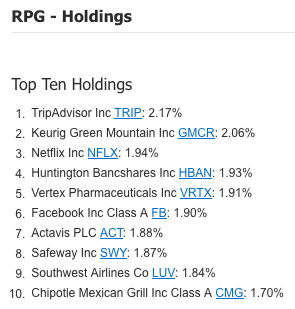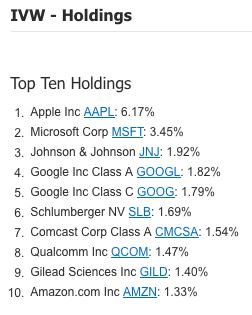-- Edit -- It turns out that the RPG fund creates an index of "pure-style growth" from the S&P 500/Citigroup PURE growth index, where the IVW ETF creates an index from the S&P 500/Citigroup growth index; sorry I missed that.
I'm trying to compare ETFs using etfdb.
I saw two ETFs that track identical indexes, but both have very different returns after 5 years:
IVW 5-year return was 125.43%, with an expense ratio of 0.18%.
RPG 5-year return was 183.31%, with an expense ratio of 0.35%.
Both of these ETFs track the S&P 500/Citigroup Growth Index.
I was under the impression that ETFs were passively managed, and therefor two ETFs tracking the same index would have the same return, less expense ratios. Is that an incorrect assumption--are (some) ETFs actively managed?
Is there something else that I'm not accounting for which would justify different returns for ETFS tracking identical indices?


